
Addiction Information and Treatment
Addiction and treatment fundamentals, techniques and methods for every type of addiction (Drug, alcohol, prescription etc.) so you can know what receiving treatment in a drug rehab center entails.
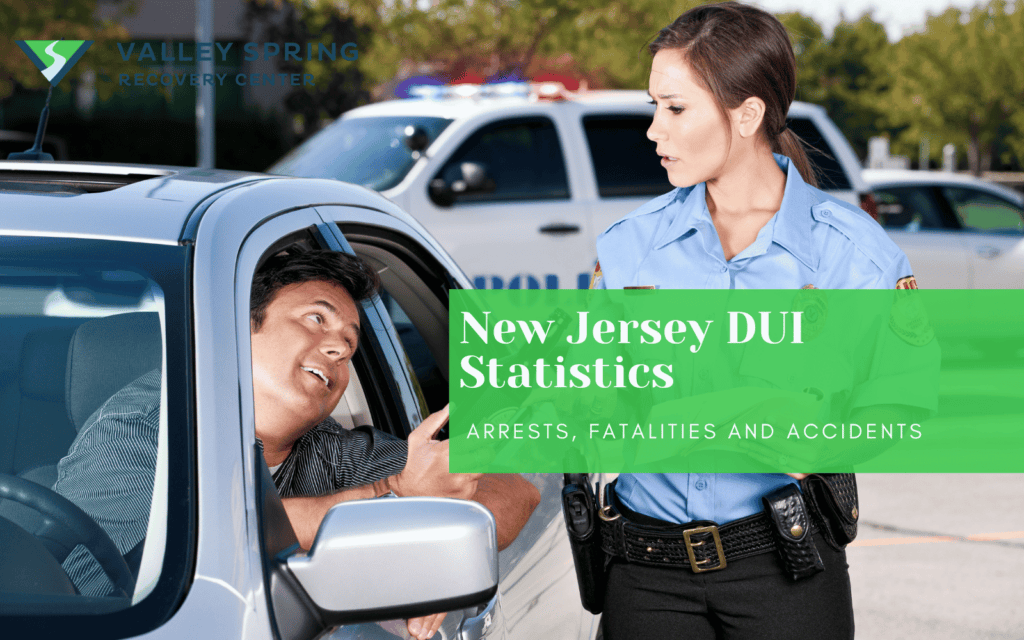
New Jersey DUI Statistics: Arrests, Fatalities, and Accidents
Driving under the influence (DUI) poses a serious risk to public safety, and New Jersey is no exception. The state faces significant consequences from DUI incidents. An annual report from the State Police highlights that intoxicated drivers are now the leading cause of all fatal crashes in New Jersey, surpassing distracted driving for the first…

12 Most Expensive And Luxury Sober Living Homes
Recovery from addiction is a deeply personal and transformative journey, significantly influenced by the environment. Research from 2007 by Brandon TH, Vidrine JI, and Litvin EB highlights a daunting statistic: over 85% of individuals relapse and return to drug use within one year of treatment, underscoring the profound challenge of maintaining long-term sobriety. Sober living…
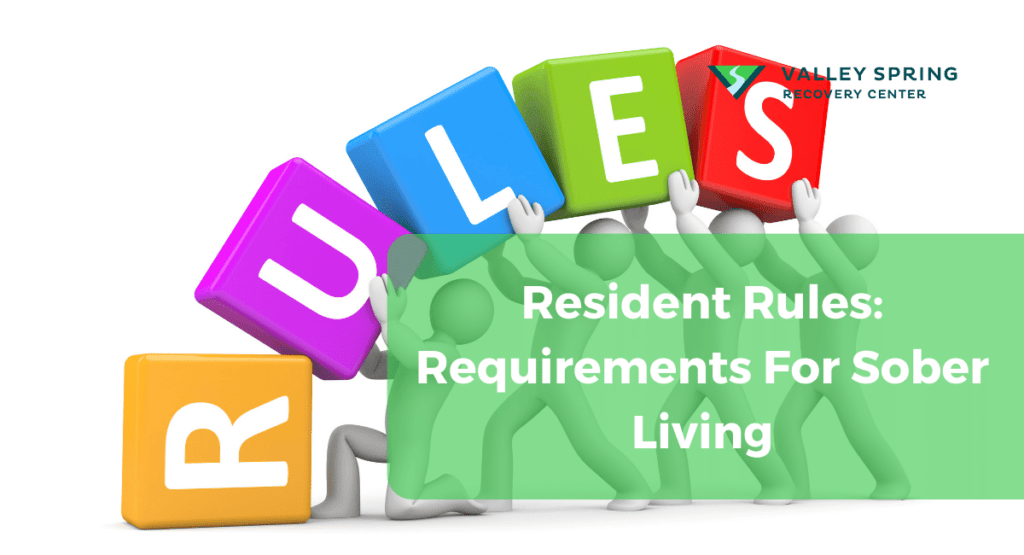
Sober Living House Rules: Regulations, Protocols and Governing Bodies
Sober living facilities are crucial components in the continuum of addiction recovery care. They provide a structured and supportive environment essential for individuals transitioning from more intensive treatment phases to routine daily living without substance use. Established under the guidance of the National Association of Recovery Residences (NARR) in 2011, these facilities operate under a…
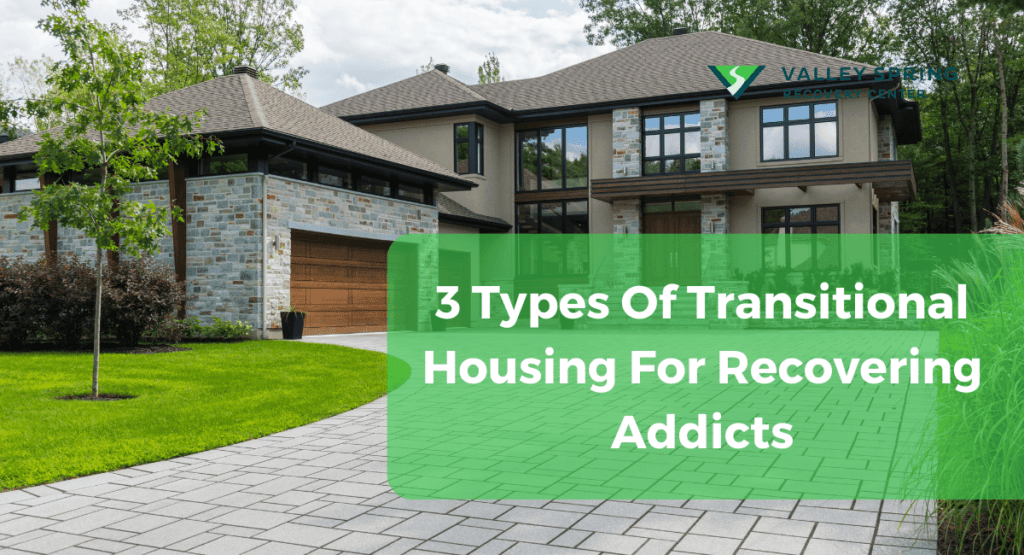
3 Types Of Transitional Housing For Recovering Addicts: Sober Living, Halfway Houses, Oxford Houses
Transitional housing refers to temporary living arrangements specifically designed to bridge the gap between an intensive treatment setting and mainstream society for individuals recovering from substance use disorders. This type of housing provides a supportive, structured environment where residents can continue to heal while reintegrating into everyday life. The three common types of transitional housing…
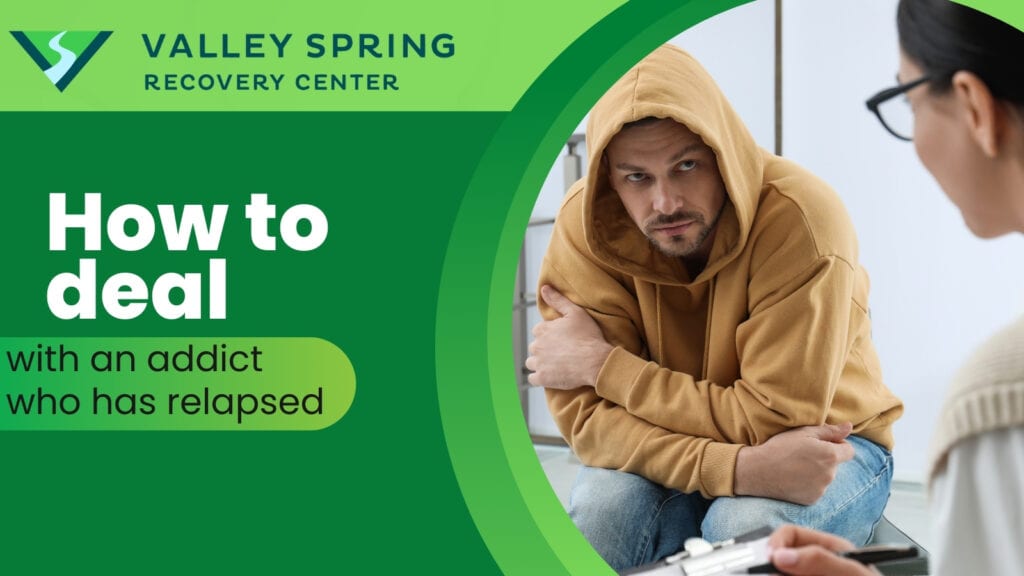
12 Ways To Help An Addict That Relapsed (Relapse Intervention Strategies For Loved Ones)
Relapse is the process where a substance user returns to the habit after they have ceased engaging in it. According to a 2023 study by NIDA, titled Treatment and Recovery, about 60 percent of recovering addicts relapse. When dealing with a loved one who has relapsed, it is important to remember that addiction is a…
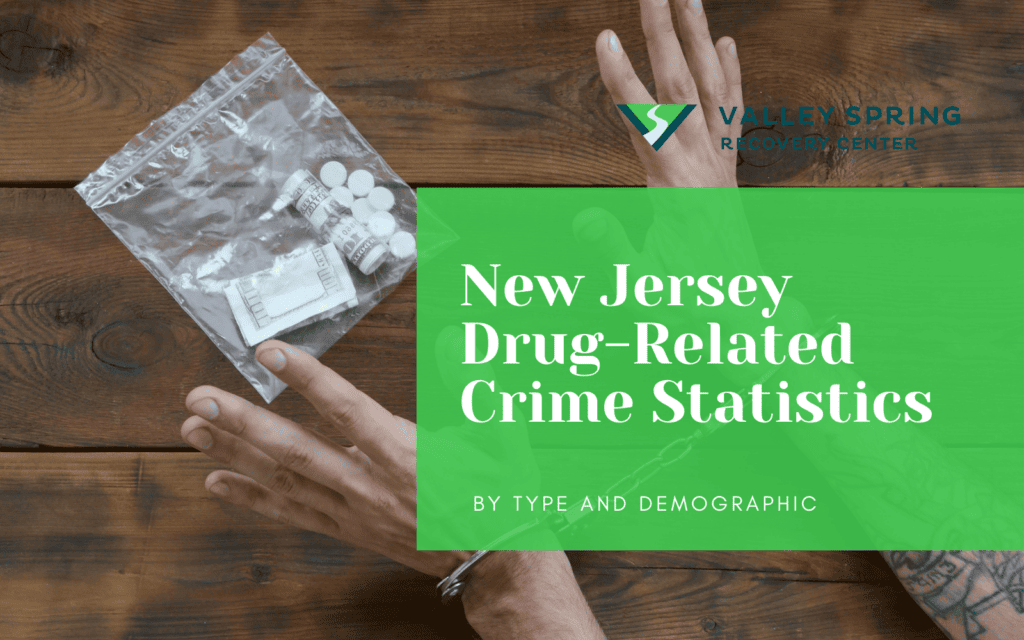
New Jersey Drug-Related Crime Statistics
Drug use and related crime have long been a concern in New Jersey. These crimes endanger public safety, strain law enforcement resources, and contribute to community instability. Drug-related offenses include possession, distribution, and trafficking of illegal substances that lead to violence, addiction, and socioeconomic disparities. In addition, property crimes like shoplifting and burglary stem from…
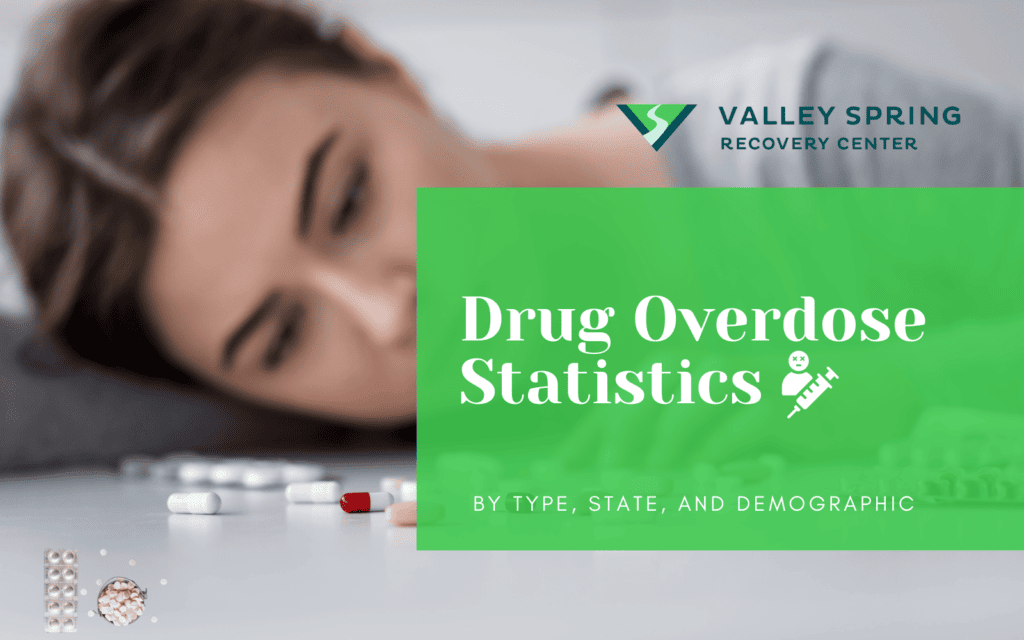
Drug Overdose Statistics by Type, State, and Demographic
Deaths by drug overdose spiked by 30% during the COVID-19 pandemic. Dr Nora Volkow, the director of the National Institute of Drug Abuse at the National Institutes of Health expected drug overdose cases to reduce after the pandemic. Unfortunately, overdose deaths continue to rise—now owing to stress and excessive use of opioids. In this post,…
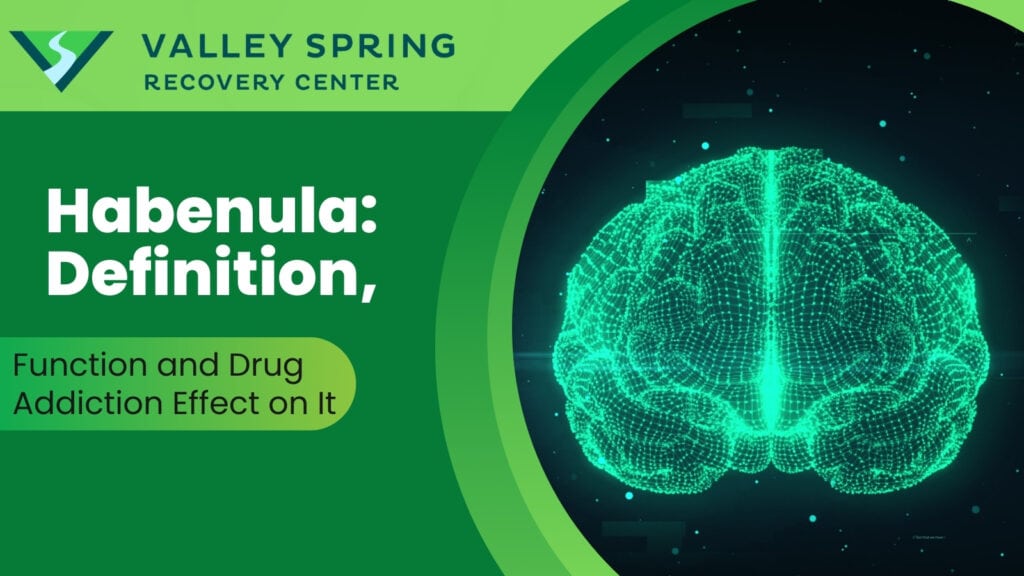
Habenula: Definition, Function, and Drug Addiction Effect on It
The habenula is a tiny, elongated structure within the brain that integrates emotional, cognitive, and motivational processes. The habenula is in charge of reward processing, aversion, dopamine, and serotonin regulation, motivation, and decision-making. Habit-forming substances affect the habenula by changing reward processing circuits, they increase stress responses and impair decision-making. In addition, they cause neuroplastic…
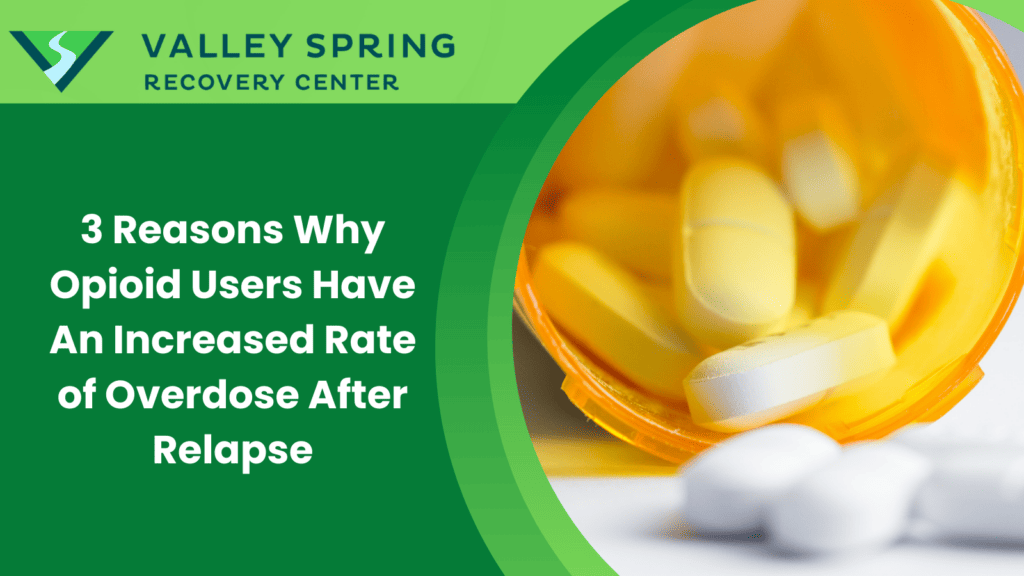
3 Reasons Why Opioid Users Have An Increased Rate of Overdose After Relapse
Opioids are medications used to relieve pain. They include prescription drugs such as tramadol, hydrocodone, fentanyl, and oxycodone. Apart from prescription drugs, there are also illegal opioids such as heroin which have a very high overdose rate. Relapsed opioid users have an increased rate of overdose due to decreased tolerance, high possibility of ingesting laced…
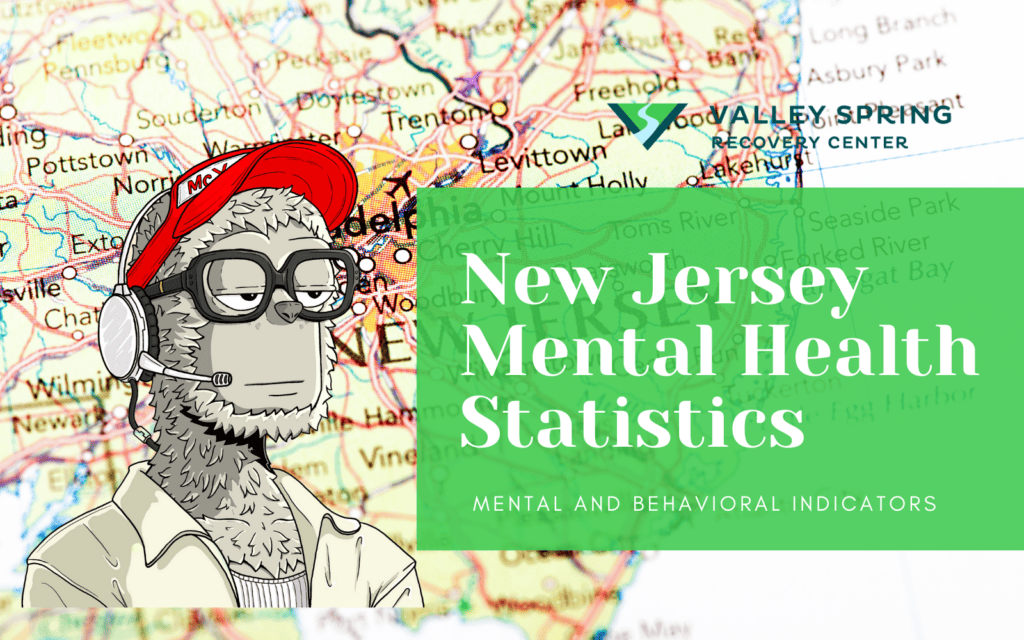
New Jersey Mental Health Statistics
Mental health issues in New Jersey have become more evident, with 27.7% of adults showing signs of anxiety or depression in 2023, and 37% indicating their mental health was affected by the COVID-19 pandemic. Significant impacts were noted among young adults and high school students, with a notable portion of individuals with severe mental illness…
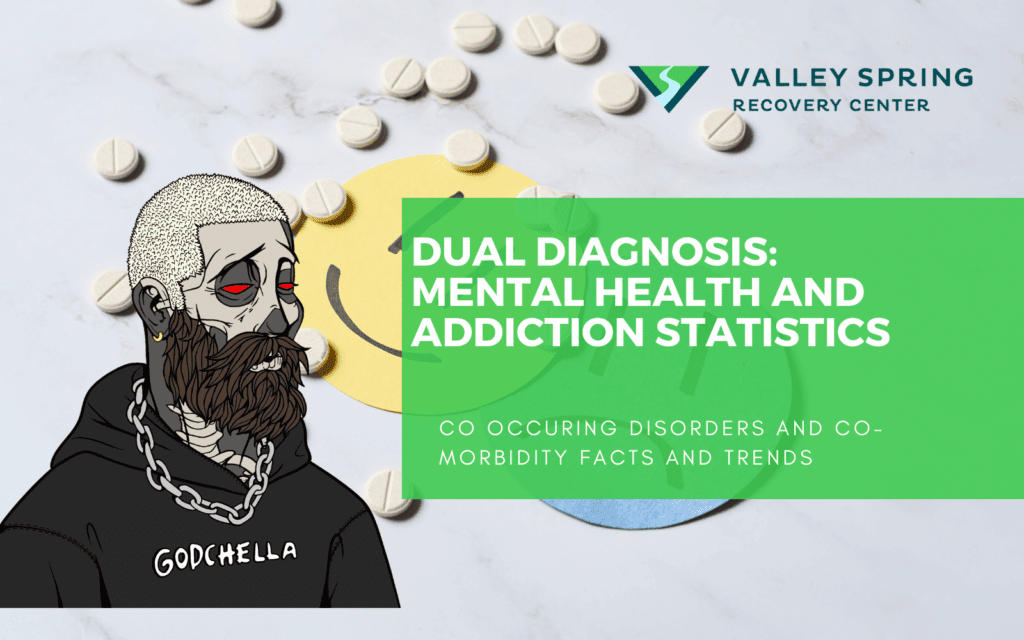
Dual Diagnosis: Mental Health and Addiction Statistics
Dual diagnosis refers to the presence of both a mental health disorder and a substance use disorder in the same individual This co-occurrence is common and affects millions of people in the United States and worldwide. The symptoms of dual diagnosis significantly impact a person’s well-being and make it challenging to manage both conditions effectively.…
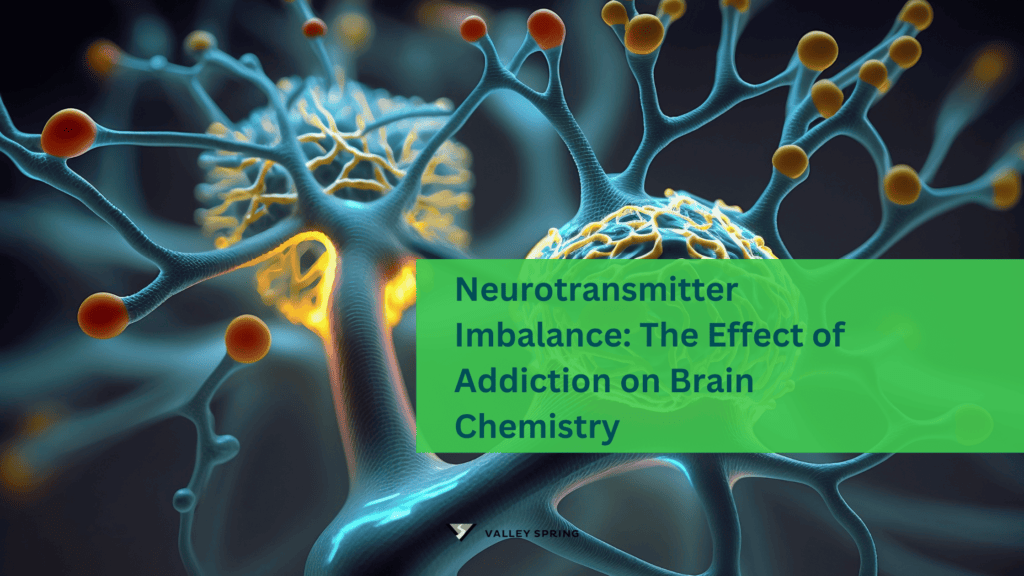
Neurotransmitter Imbalance: The Effect of Addiction on Brain Chemistry
Neurotransmitter imbalance, caused by factors like substance use, affects brain communication, leading to mood and behavior changes. This imbalance can deepen addiction, increasing tolerance and withdrawal symptoms, leading to anhedonia. Treatment for neurotransmitter imbalance integrates medication, nutritional therapy, exercise, and behavioral therapies to restore balance and address addiction’s root causes, supporting recovery and mental health.…
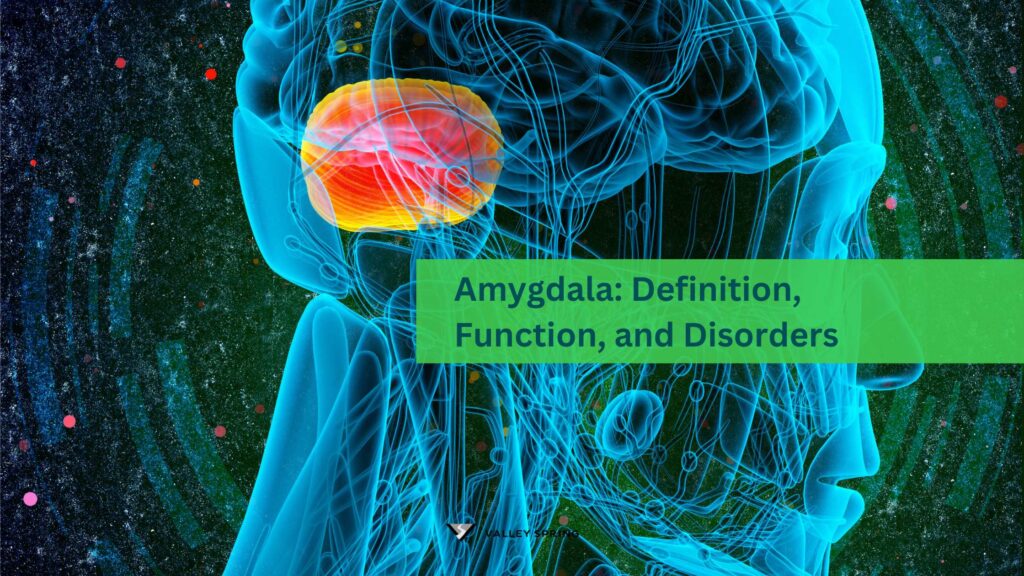
Amygdala: Definition, Function, and Disorders
The amygdala is a small almond-sized part of the brain forming the limbic system that derives its name from almonds due to its resemblance to the nuts. The main function of the amygdala is to process emotions. It is also heavily involved in learning, forming memories, and reward processing. Disorders associated with the amygdala in…
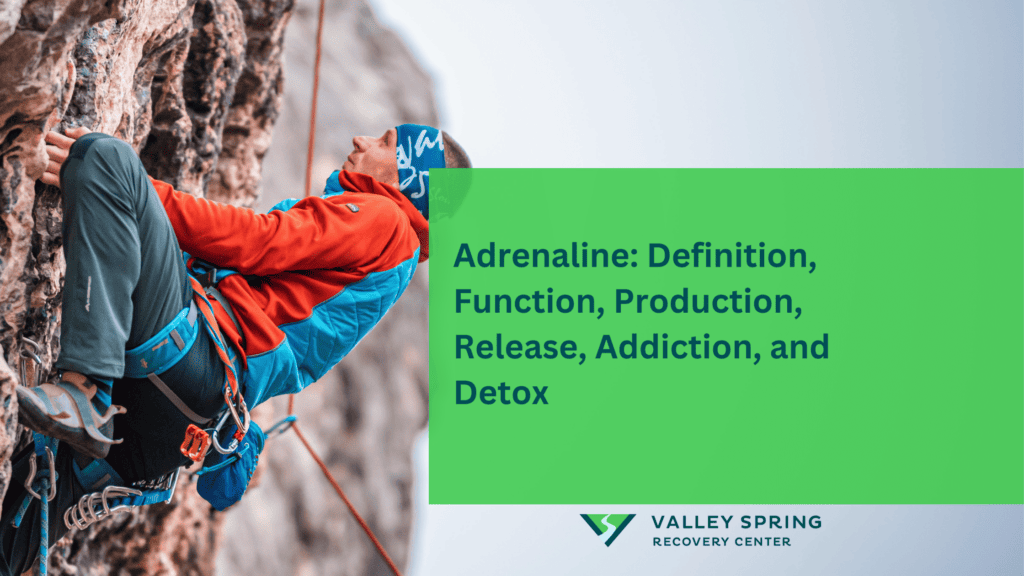
Adrenaline: Definition, Function, Production, Release, Addiction, and Detox
Adrenaline, also known as epinephrine, is essential for the body’s stress response, triggering the “fight or flight” mode via the adrenal glands. It’s produced in the adrenal medulla and released in response to stress, threats, or excitement. This neurotransmitter plays a role in addiction-related behaviors like gambling and reckless driving, as it’s linked to the…
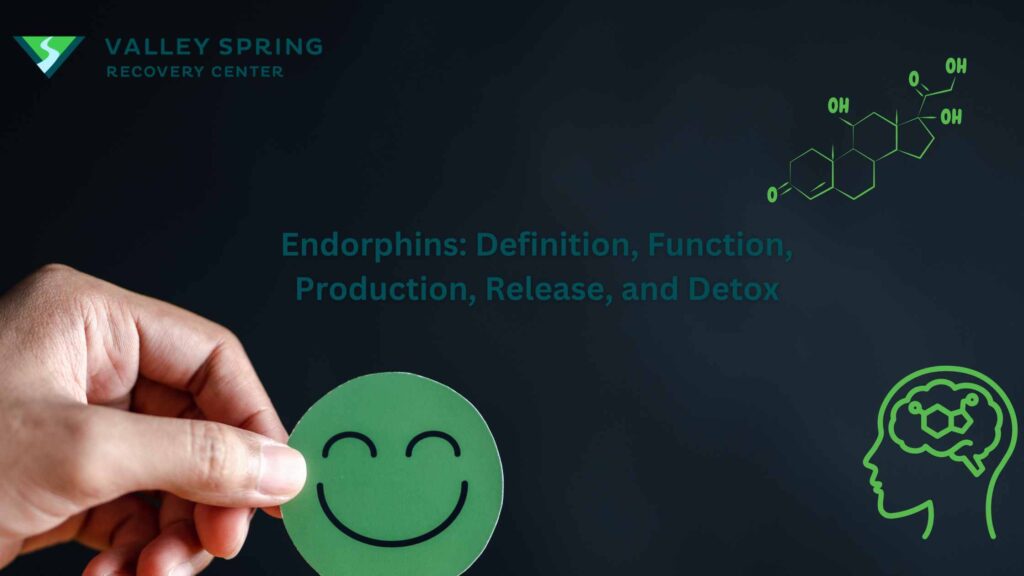
Endorphins: Definition, Function, Production, Release, Addiction and Detox
Endorphins are neurotransmitters in the brain that play a crucial role in pain relief and stress management. Named from “endogenous” (produced within the body) and “morphine” (due to their morphine-like effects), endorphins are known for their ability to produce a euphoric state often referred to as “runner’s high,” which has the potential to be addictive.…
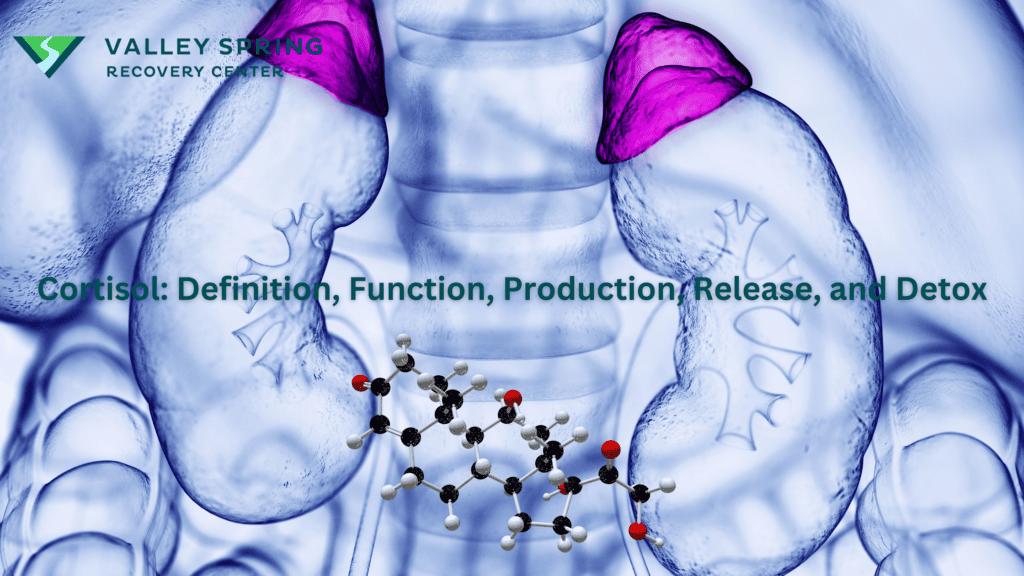
Cortisol: Definition, Function, Production, Release, Addiction and Detox
Cortisol is a hormone produced by adrenal glands that acts as the body’s primary stress hormone, is intricately involved in addiction due to its role in the ‘fight or flight’ response and its elevation during stress, which can perpetuate addictive behavior. It closely interacts with the brain’s reward system and hypothalamic-pituitary-adrenocortical (HPA) axis which makes…
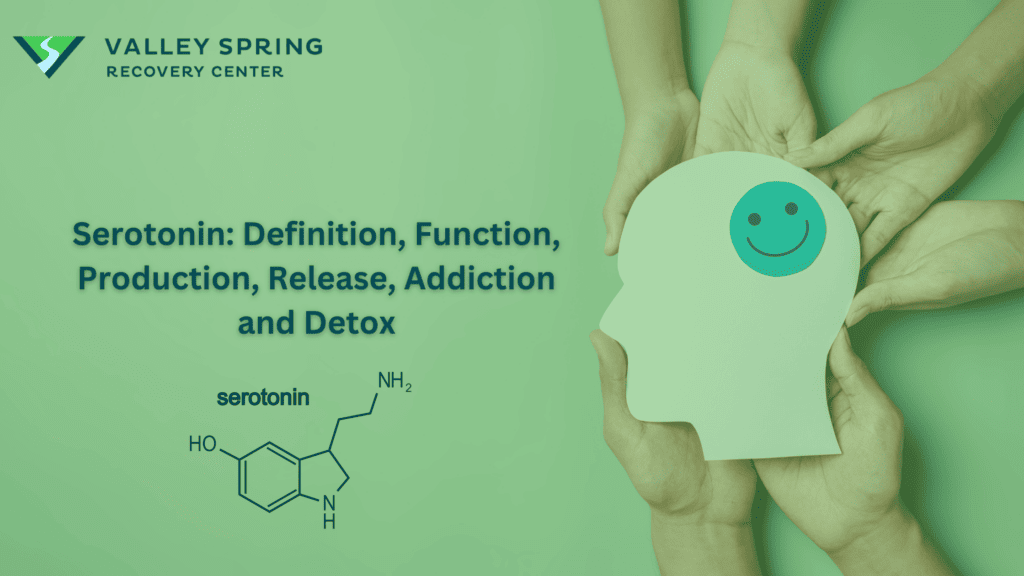
Serotonin: Definition, Function, Production, Release, and Detox
Serotonin is a neurotransmitter primarily found in the brain and gastrointestinal tract. It plays a crucial role in regulating mood, sleep, healing, memory, sexual drive, and learning. Serotonin functions as a naturally-occurring feel-good hormone in the body. The feelings of well-being, emotional stability, and focus occur as long as serotonin levels in the body are…
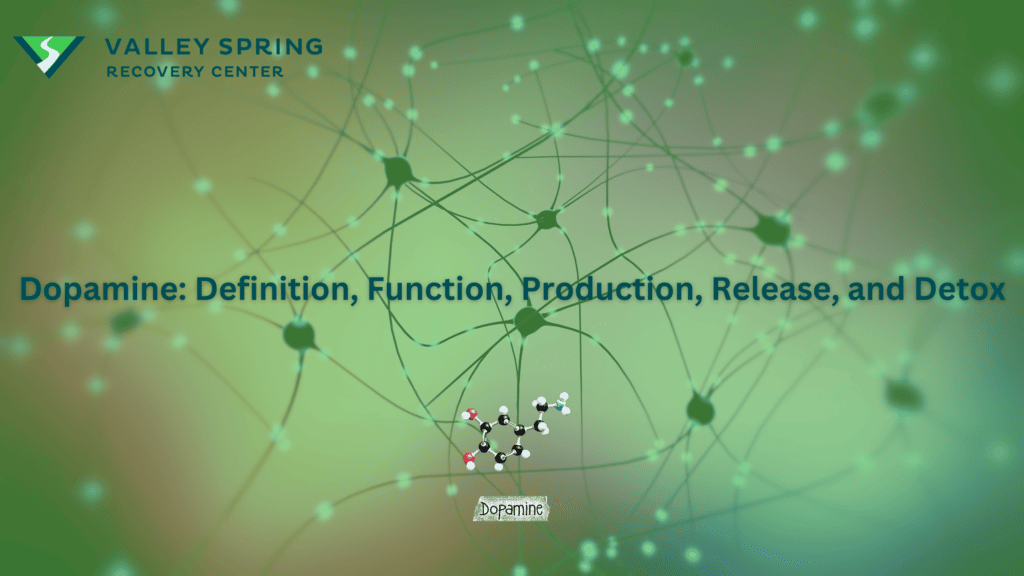
Dopamine: Definition, Function, Production, Release, and Detox
Dopamine is a critical neurotransmitter, acting as a chemical messenger in the brain to transmit signals between neurons. Its primary role is significant in both our physical and psychological functions, influencing behavior, motivation, and reward. One of the key functions of dopamine lies in its connection to addictive behaviors. This neurotransmitter is released following pleasurable…
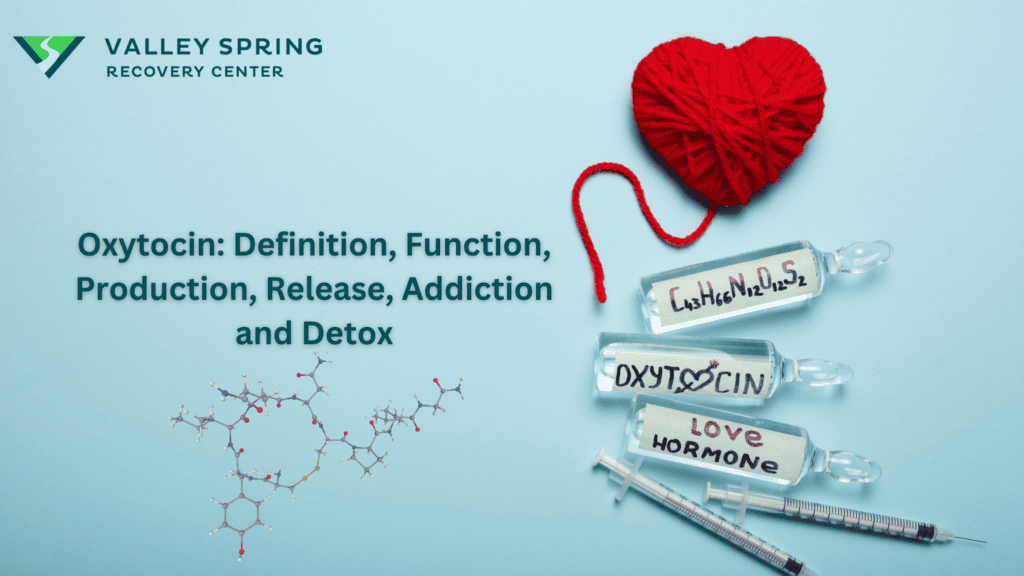
Oxytocin: Definition, Function, Production, Release, Addiction and Detox
Oxytocin, often hailed as the “bonding” or “love” hormone, is a peptide neurotransmitter integral to reproduction and social interactions. This hormone is pivotal in various physiological processes, including childbirth, breastfeeding, and the deepening of social bonds. Understanding the multifaceted role of oxytocin underscores its significance in human physiology and psychology, from fostering maternal behaviors to…
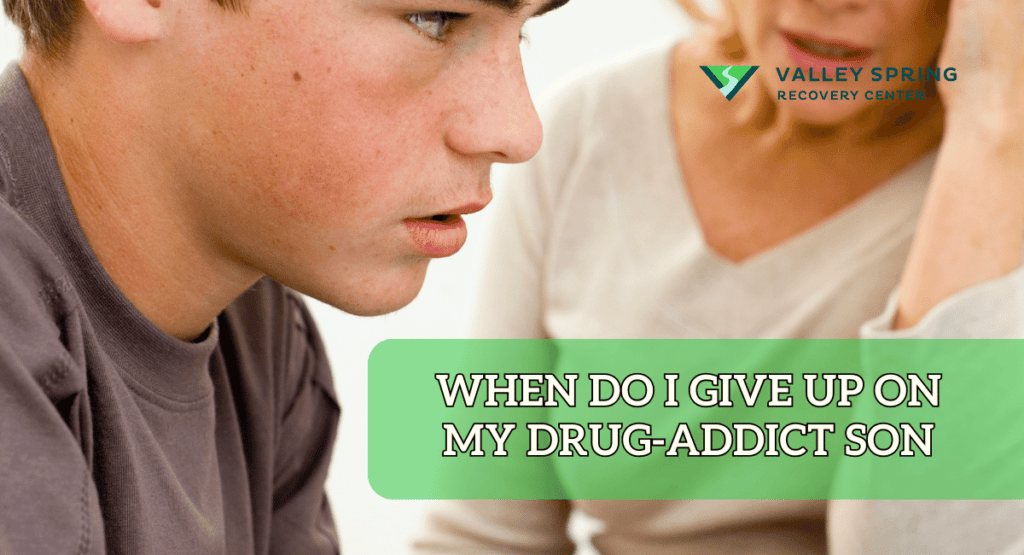
Drug-Addicted Son: What It’s Like, When To Giveup & Boundary Setting
Dealing with a drug-addicted son is an incredibly challenging and heart-wrenching experience for any parent. Addiction is a complex condition that takes a toll on both the addicted and their loved ones. It affects physical, mental, and emotional health, creating problems in familial relationships. There is never a good time to give up hope, however,…
Contact Us Today
Valley Spring Outpatient Program is a top addiction outpatient treatment center in Bergen County, NJ that offers evidence-based, holistic treatment for alcohol, drug and behavioral addictions. Reach out today!



